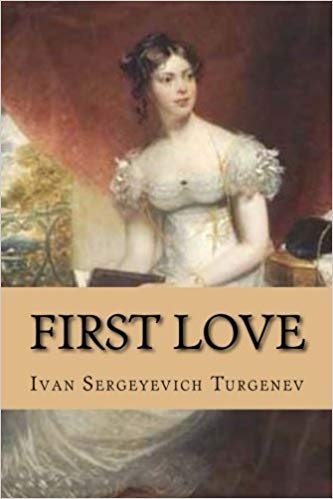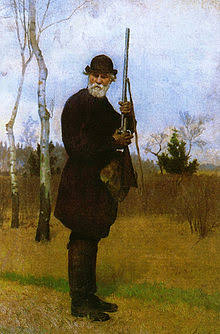Nathaniel Lucas
First Love (1860) by Ivan Turgenev
Sixteen year old Vladimir Petrovich lives in the country outside Moscow with his nervous mother and distant, overbearing father. It is the summer of 1833, and an impoverished widow of the minor nobility rents the house next door with her children and servants. The unmarried 21 year-old daughter, Princess Zinaida is a stunning beauty with a haughty and playful personality. After a fumbling introduction, Vladimir Petrovich is fully smitten. He is not the only one. Daily, her suitors arrive from Moscow and elsewhere; a hussar, a poet, a count, a doctor and a retired army officer. Zinaida puts them and young Vladimir through their paces nightly in the living room, devising ever more elaborate games and competitions in which they can win the privilege of kissing her hand.

Zinaida uses the suitors as footstools, makes them reveal secrets, sing songs of her choosing, in short she toys with them in increasingly humiliating ways. Yet she knows how to flatter each man and keeps them on her hooks, with just enough politeness and charm to keep them coming back. The poet recites an epic he has composed in her honour, the hussar promises his eternal defense, the count and the doctor propose marriage and all profess their love most ardently to Zinaida. Vladimir is shaken by his first experience of infatuation. He becomes moody, desperate, and like countless young men before him, he struggles to understand and control the compulsion he has to be in Zinaida’s presence, while wallowing in fantasy:
“The image of the young girl floated before me, my heart was no longer leaping, but was full of a sort of sweet oppression.”
He attends to Zinaida as often as he can, confesses his love, as if it were not obvious to her, and ceases his customary study and horseback riding in favour of watching the windows of the house next door, hoping to catch a glimpse of Zinaida or speak to her in the garden or run an errand for her:
“Like a beetle tied by the leg, I circled constantly round my beloved little cottage: I would have stayed there forever if I could.”
Concerned that Zinaida is falling for the Count, with his rakish moustache, Vladimir asks her directly. The Princess responds:
“You don’t think I’m in love with him, do you?…Oh no, I couldn’t possibly be in love with someone whom I have to look down on. I want someone who will master me. But, thank goodness, I shall never come across any man like that! I will never fall into any man’s clutches—never!”
At first Zinaida delights in her whims and caprices with Vladimir and the suitors, yet as the summer wears on, Vladimir notices a change in her demeanour. She shows less and less delight in tormenting her suitors. Eventually she confides to him that she is despondent because she is in unrequited love, but with whom she will not tell him.

Turgenev said late in his life that First Love gave him the greatest satisfaction of all his works. “because it is life itself, it was not made up…First Love is part of my experience.” At the end of the story when Vladimir discovers who Zinaida has fallen for and why, he receives the bluntest possible lesson in sexual dynamics. It is too clever to spoil here.
Turgenev, an aristocrat himself, was considered a liberal in Russia when he lived, but all lasting art reveals truth about humanity, and great artists often betray themselves. Narrated in the first person from Vladimir’s perspective, the book accurately shows the internal state of a young man hopelessly in love with a capricious girl. At less than 100 pages in most editions, I recommend this scorpion of a novel to all readers, but fathers of teenage boys should especially consider it as an essential part of their son’s upbringing.









